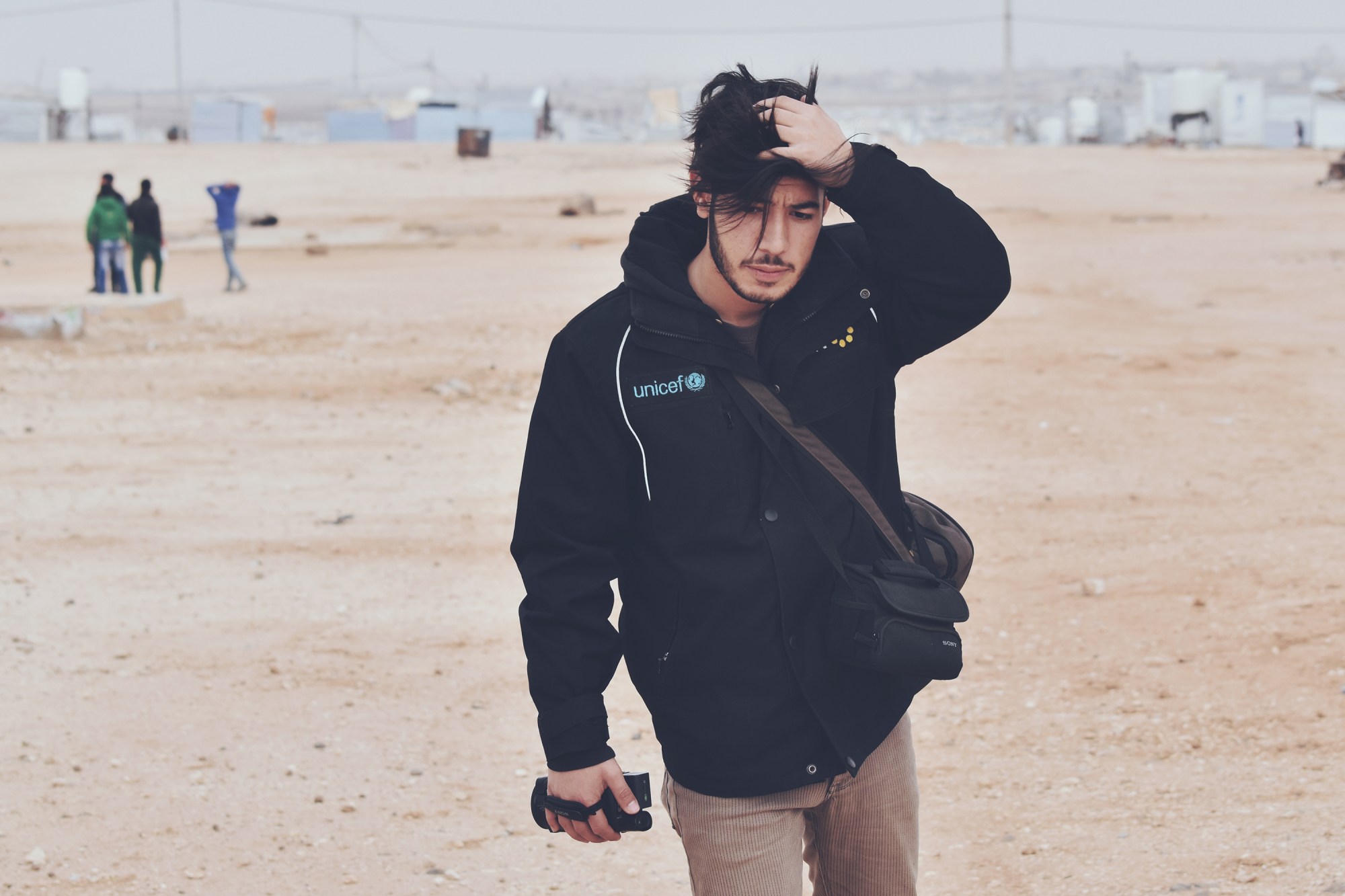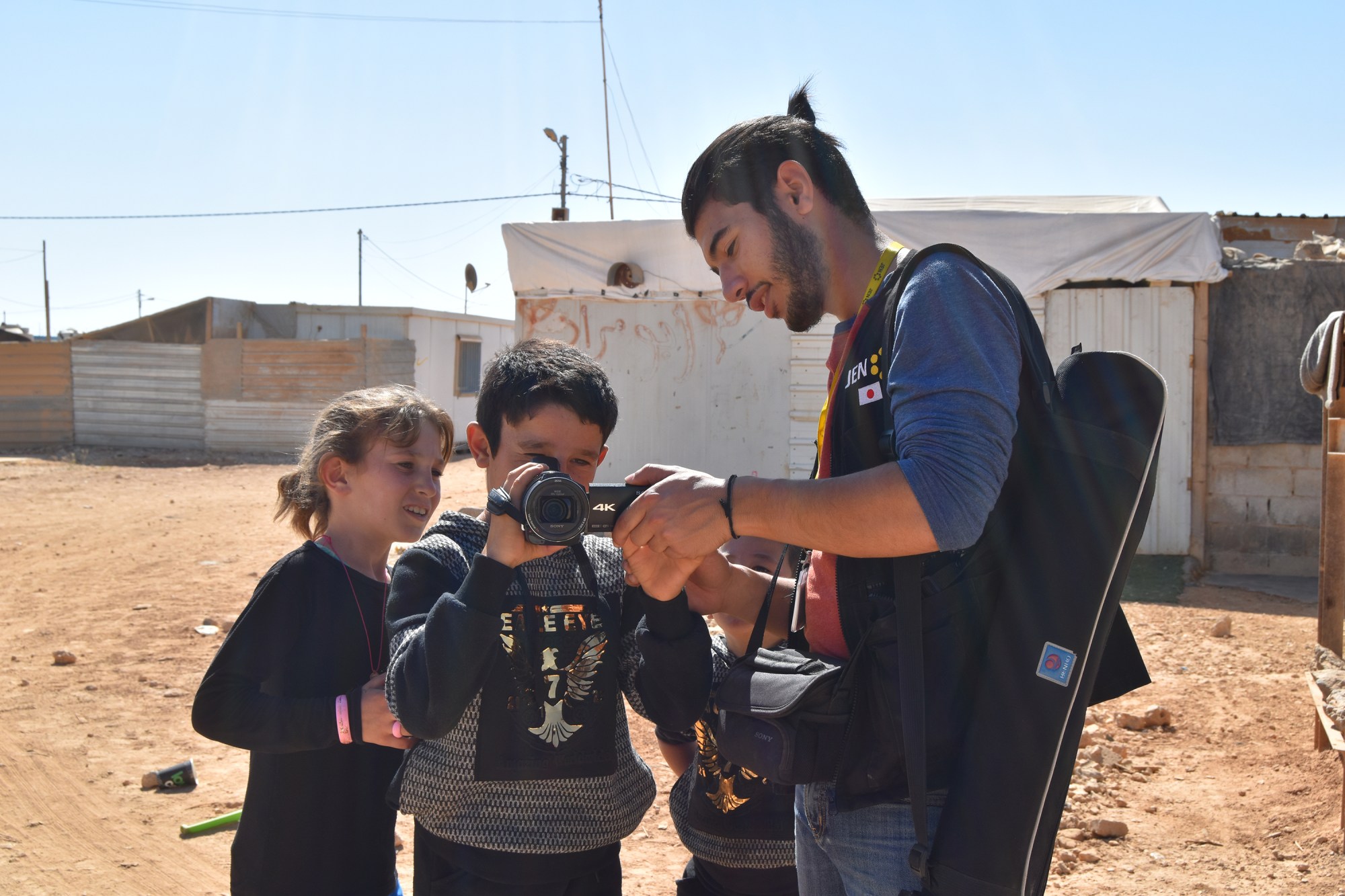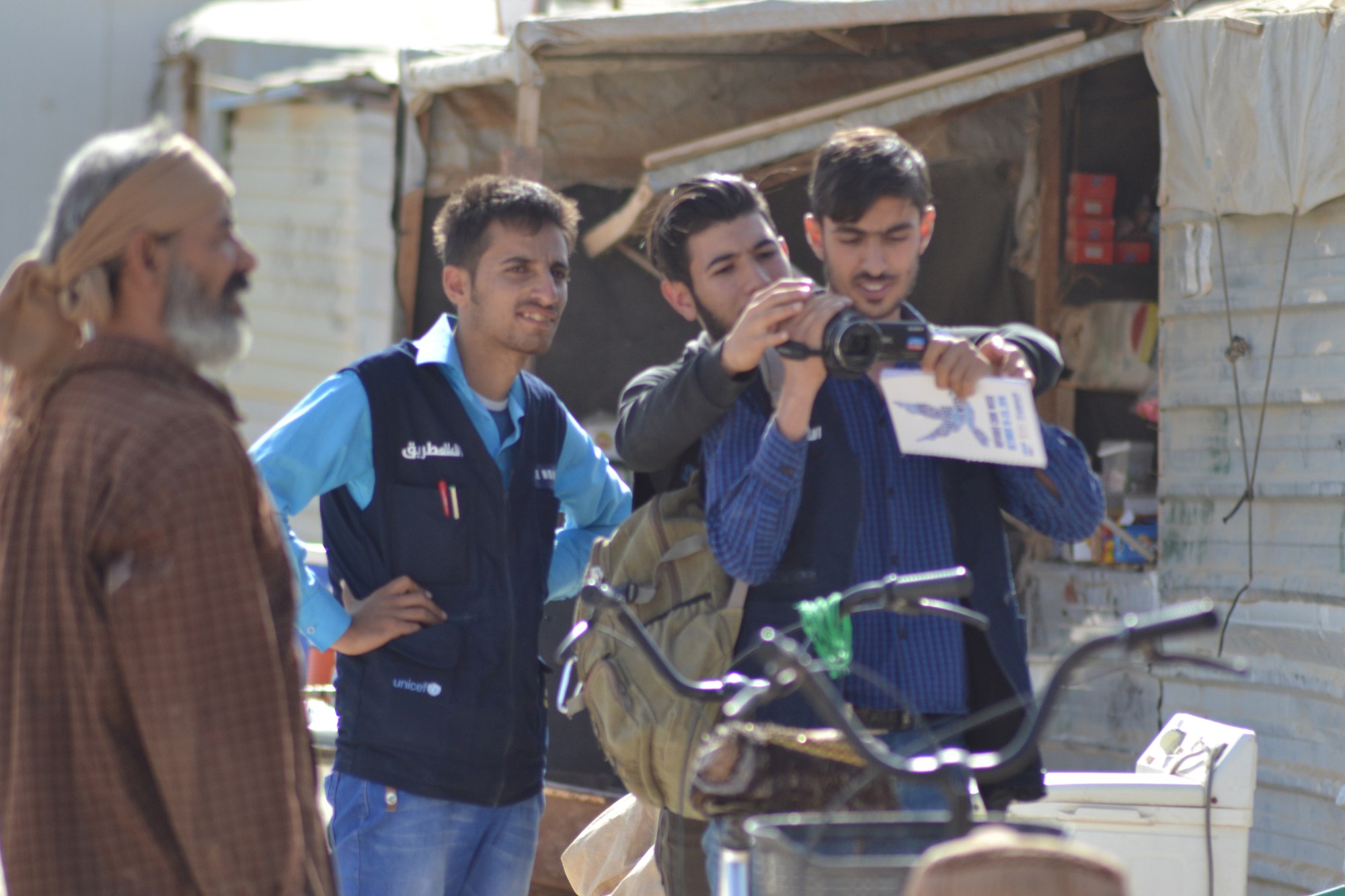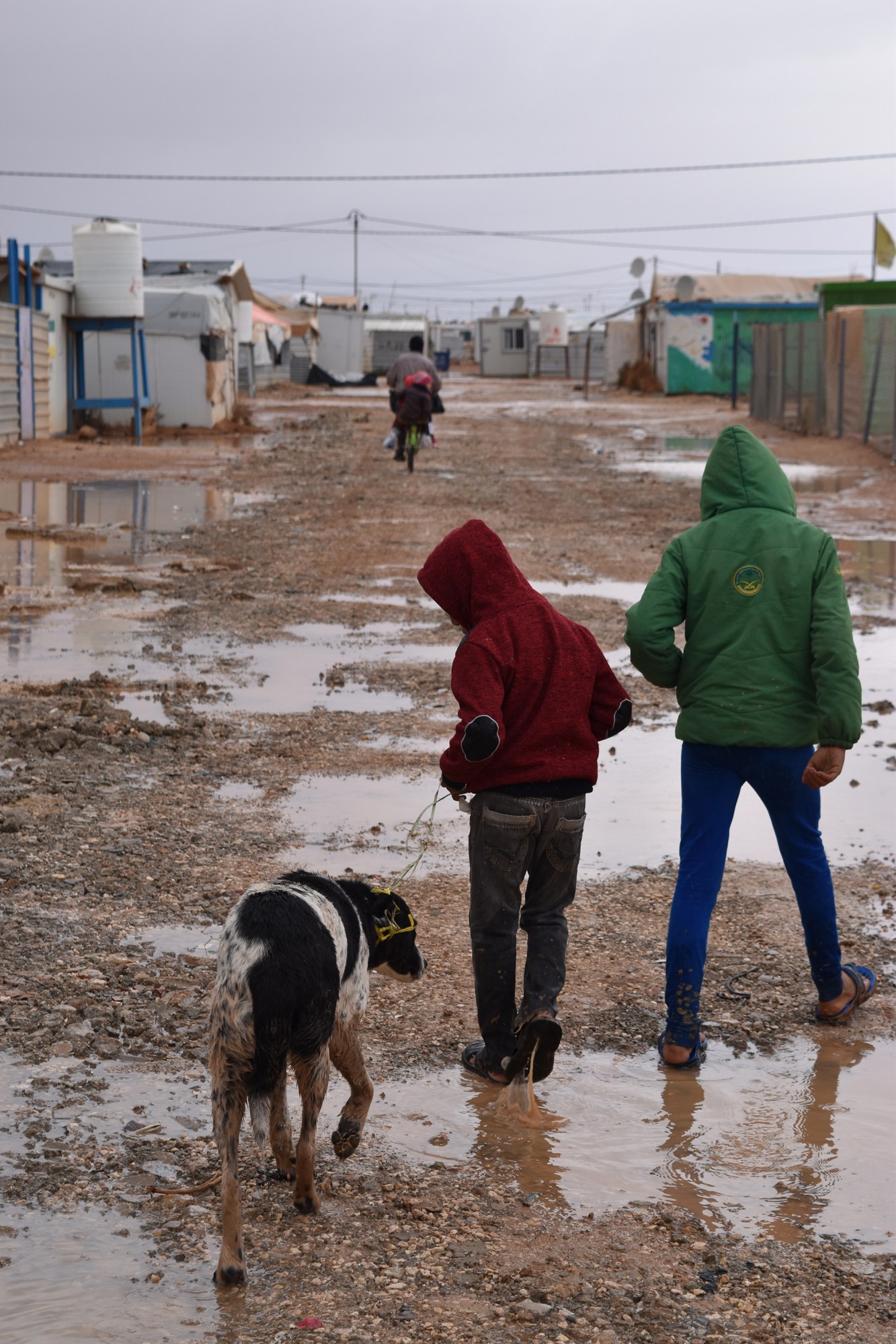It’s easy to take everything you own for granted. But when you’re forced to leave your own homeland and become a refugee, you realise that not everything is forever. 23-year-old Palestinian refugee Omar Braika is currently working on a project documenting stories of those in the Zaatari Syrian refugee camp in Jordan. With a population of over 83,000 people, Zaatari was opened back in 2012 to host fleeing refugees from the ongoing Syrian Civil War. It’s considered to be the largest Syrian refugee camp in the world. Omar, who was born and raised in Amman, Jordan, has never seen his homeland, so he relates strongly to the Syrian being kids born in the camp.
The key to peace can be rooted in awareness. With awareness, people understand the need for change. I got the chance to talk to Omar about his documentary project on the camp, representation of refugees in the media, and what his hopes are for the future.
Can you tell me about your project in Zaatari camp?
The project was originally a magazine (The Road) distributed in the camp by volunteers. But when I joined the NGO team JEN in the camp, I started working as the director of a documentary video project called IN TRANSIT, where I give workshops to the refugees and document stories from the camp. The whole point of the project is to give a voice to the refugees by the refugees.
What do you think of the representation of refugees in western media?
I don’t agree with the way they represent them because they usually fabricate to support their views. They usually set up scenarios; giving instructions to people in order for them to say what they want them to say. I don’t think that’s real journalism. They also make the refugees look like they’re always hungry, and make them look like they only think of food, just in order to sell their stories. I don’t agree with the dehumanisation and exploitation of refugees. So I’m trying to fight that image with my documentary project, letting the refugees document their own real stories. They’re all human beings who lived peacefully and were forced out of their homes from war. This is all new to them.

After documenting all these different stories in the camp, which one has stuck with you the most?
There’s two stories that stuck with me. The first one is about an 11-year-old who works and provides for his family. His lives alone with his mum and siblings. Whenever he sees me in the camp he rushes over and hugs me and it kills me to not be able to help him. What’s sad is that he believes it’s normal to work at such a young age and to provide for his family, and he’s such a hard-worker. He’s now studying in school, but when he gets asked why he likes to work, he says it’s because he loves his mum. He loves to help her. When I documented him, I saw how he treated his little brother — he feels responsible for taking care of him even though he’s just 11 years old.
The second story that stuck with me is about an inspiring elderly man who, after all the hardship he’s been through, continues to smile and seems so youthful. Most of his children died, he’s been divorced many times, and his last wife couldn’t make it out of Syria and was shot there. You know, there’s a stereotype in the media about religious Muslim men being all serious and angry, but he is totally the opposite of that. His current work is very symbolic to me. He takes old and used holy Quran books and fixes or cleans them so that people can read from them again. What’s symbolic about that is that it’s like he’s fixing his past and creating a fresh start for himself whenever he fixes a Quran book.
With all the hardships these refugees have been through, what do you think keep them going?
They all have a passion for life. They tend to have hobbies that help them distract themselves from what they’re going through. Like with the old man who fixes the holy Quran book, and the boy who loves to help his mum. I met the cutest young girl named Farah (which means joy). When I documented her, I asked her what she wants to do in life, and she said “To be happy!” She does everything that makes her happy, plays football, goes to her friend’s house, and recites poems. She has a big passion for life at such a young age and that truly amazes and inspires me.

As a Palestinian refugee yourself, you’ve never seen your homeland. What does it feel like documenting all these Syrian kids who haven’t seen their homeland?
You know, there’s such a big percentage of kids who were born in the camp that for them the camp has become a norm. They don’t know what life outside the camp is like. There’s a new building currently being made in the camp, and I asked a young kid, “What do you think of this building?” and he said “What’s a building?” He was so used to seeing caravans that the idea of a building has been erased. For him, the whole world is in this refugee camp. It’s not that he just didn’t see his homeland, he hasn’t seen any country in the world. The same thing goes for me and many Palestinian refugees. We haven’t seen our homeland. It’s strange to be called a Palestinian refugee when I’ve never been there. What’s even more strange is when the occupier doesn’t recognise your right of return. I just really hope that the future of Syrian refugee camps doesn’t end up being like the present of Palestinian refugee camps.
What do you hope to achieve with your work?
When I was a kid, my mum used to always tell me, “We were all born to help each other,” and that stuck with me and became a goal of mine at a young age. When I discovered my passion for documentary I wanted to mix both together. I’m just glad I’m able to help people with my work.
And lastly, how do you see peace in 2018?
I think after everything that happened from Syria to Trump’s Jerusalem embassy move, people are talking. There’s a conversation going on and that’s super important in order to achieve peace. It’s hard to avoid these issues nowadays because everyone is slowly paying attention. When Trump won the US election, the world woke up. People are slowly uniting and seeing the lies they’ve been told for so long. I just hope 2018 gives us a new meaning for peace, and we have more and more people uniting for change.

